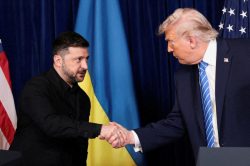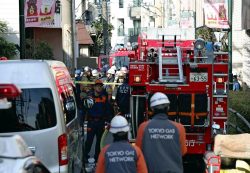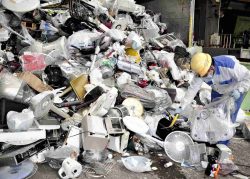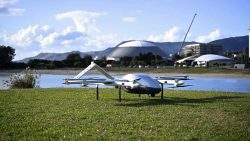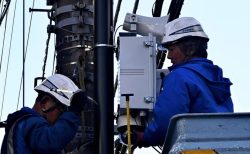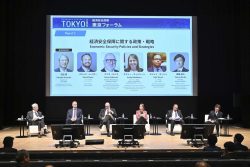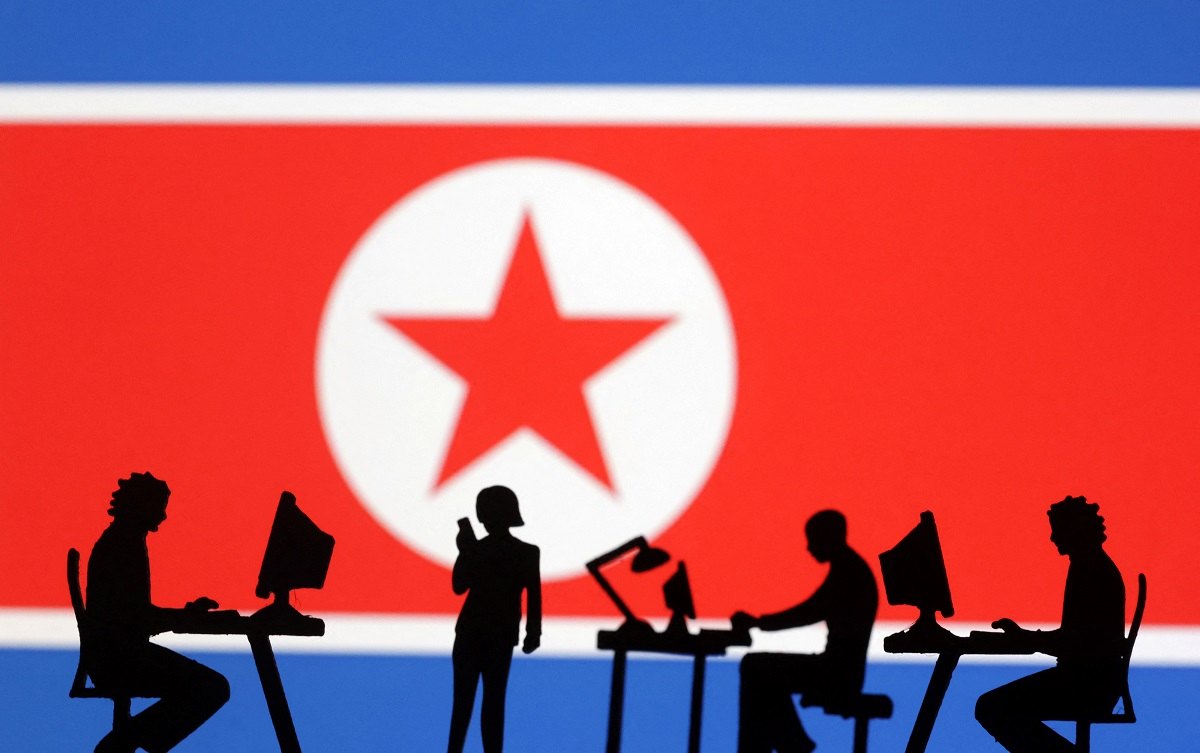
Miniatures of people with computers are seen in front of North Korea flag in this illustration taken July 19, 2023.
11:35 JST, February 8, 2024
UNITED NATIONS (Reuters) – United Nations sanctions monitors are investigating dozens of suspected cyberattacks by North Korea that raked in $3 billion to help it further develop its nuclear weapons program, according to excerpts of an unpublished U.N. report reviewed by Reuters.
“The Democratic People’s Republic of Korea (DPRK) continued to flout Security Council sanctions,” a panel of independent sanctions monitors reported to a Security Council committee, using North Korea’s formal name.
“It further developed nuclear weapons and produced nuclear fissile materials, although its last known nuclear test took place in 2017,” wrote the monitors, who also said Pyongyang had continued ballistic missile launches, put a satellite into orbit and added a “tactical nuclear attack submarine” to its arsenal.
North Korea has long been banned from conducting nuclear tests and ballistic missile launches by the 15-member Security Council. Since 2006, it has been subject to U.N. sanctions, which the council has repeatedly strengthened to try and cut off funding for its weapons of mass destruction (WMD) development.
“The panel is investigating 58 suspected DPRK cyberattacks on cryptocurrency-related companies between 2017 and 2023, valued at approximately $3 billion, which reportedly help fund DPRK’s WMD development,” the monitors wrote.
North Korea’s mission to the United Nations in New York did not immediately respond to a request for comment on the report by the sanctions monitors. Pyongyang has previously denied allegations of hacking or other cyberattacks.
The U.N. report is due to be released publicly later this month or early next month, diplomats said.
North Korean hacking groups subordinate to the Reconnaissance General Bureau (RGB) – Pyongyang’s primary foreign intelligence agency – reportedly continued with a high number of cyber attacks, the sanctions monitors said.
“Trends include DPRK targeting of defense companies and supply chains, and increasingly sharing infrastructure and tools,” according to the monitors, who report twice a year to the 15-member Security Council.
LUXURY GOODS
Any further action against North Korea by the council is unlikely as it had been deadlocked for several years on the issue. China and Russia instead want the sanctions to be eased to convince Pyongyang to return to denuclearization talks.
Moscow and Pyongyang also vowed last year to deepen military relations. The U.S. has accused North Korea of supplying weapons to Russia for its war in Ukraine, which North Korea and Russia have denied.
“The panel is investigating reports from Member States about supplies by DPRK of conventional arms and munitions in contravention of sanctions,” the sanctions monitors wrote.
The isolated Asian nation imposed a strict lockdown amid the coronavirus pandemic that slashed its trade and aid access, but it slowly began to re-emerge last year.
“Trade continues to recover. The 2023 overall recorded trade volume surpassed the total for 2022, accompanied by the reappearance of a large variety of foreign consumer goods, some of which could be classified as luxury items,” the sanctions monitors wrote.
The sale or transfer of luxury items to North Korea has long been banned by the Security Council. Under U.N. sanctions imposed in 2017, all countries were also required to repatriate North Koreans working abroad to stop them earning foreign currency for North Korean leader Kim Jong Un’s government.
“The panel investigated reports of numerous DPRK nationals working overseas earning income in violation of sanctions, including in the information technology, restaurant, and construction sectors,” the sanctions monitors wrote.
They also said North Korea continues to access the international financial system and engage in illicit financial operations in violation of U.N. Security Council resolutions.
"News Services" POPULAR ARTICLE
-

Japan’s Princess Kako Marks 31st Birthday, Contributed to Key Events This Year
-

Arctic Sees Unprecedented Heat as Climate Impacts Cascade
-

Brigitte Bardot, 1960s Sultry sex Symbol Turned Militant Animal Rights Activist Dies at 91
-
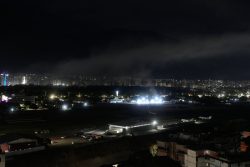
At Least 7 Explosions and Low-Flying Aircraft Are Heard in Venezuela’s Caracas
-
◎竹増ローソン社長インタビュー〔1〕_20251228YGTGS000198_C-250x166.jpg)
Convenience Store Chain Lawson May Start OTC Drug Delivery in 2026
JN ACCESS RANKING
-

BOJ Gov. Ueda: Highly Likely Mechanism for Rising Wages, Prices Will Be Maintained
-

Japan Govt Adopts Measures to Curb Mega Solar Power Plant Projects Amid Environmental Concerns
-

Core Inflation in Tokyo Slows in December but Stays above BOJ Target
-

Osaka-Kansai Expo’s Economic Impact Estimated at ¥3.6 Trillion, Takes Actual Visitor Numbers into Account
-

Major Japan Firms’ Average Winter Bonus Tops ¥1 Mil.


